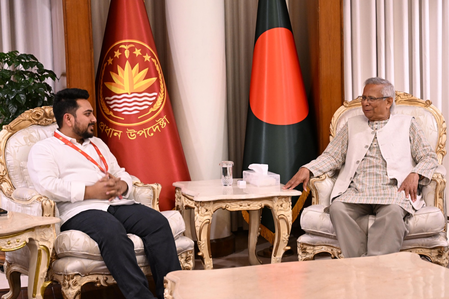Dhaka, July 19: Amid a growing public outcry and mounting pressure on the interim government, Bangladesh’s Home Advisor Jahangir Alam Chowdhury on Saturday indicated that the bodies of those killed in the recent Gopalganj violence may be exhumed for autopsies, if necessary.
Speaking to reporters in Dhaka, Chowdhury alleged that the families of the deceased took the bodies without post-mortem examinations. However, multiple reports suggest that victims, who were allegedly shot dead by security forces during a July 16 protest, were buried without autopsies or death certificates—raising serious questions about transparency and accountability.
At least five people were confirmed dead and over 50 injured during the crackdown, though local sources claim the toll could be significantly higher. The protests, reportedly against state repression under the Muhammad Yunus-led interim regime, resulted in widespread arrests. By Friday, 164 people had been detained, and police had filed cases against over 2,800 individuals, including members of the Awami League’s student wing, Chhatra League.
The Awami League sharply condemned the crackdown, accusing the interim government of ordering the “extermination” of unarmed civilians who refused to support Yunus-backed National Citizen Party (NCP) activists. The party also criticized attempts to shift blame onto victims’ families for burying the deceased without autopsies.
Bangladesh has witnessed increasing allegations of human rights violations since the Yunus government assumed office in August last year. Incidents of violence against journalists, minorities, and opposition members have been widely reported.
In a parallel development, the UN Human Rights Office signed a three-year MoU with Bangladesh to establish a mission focused on promoting and protecting human rights. The mission will offer training, technical support, and capacity-building for institutions and civil society actors, aiming to strengthen accountability in the country.









